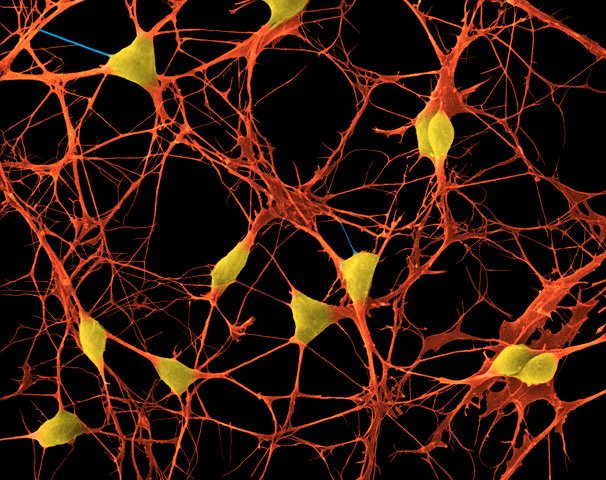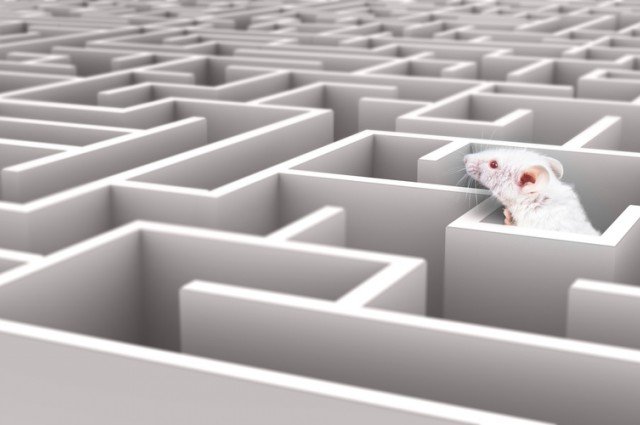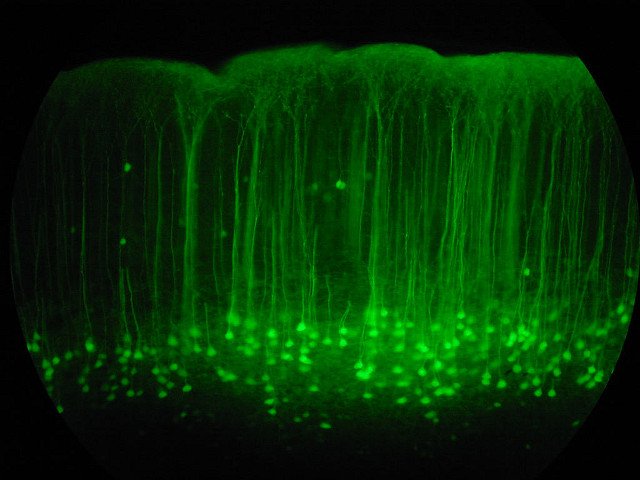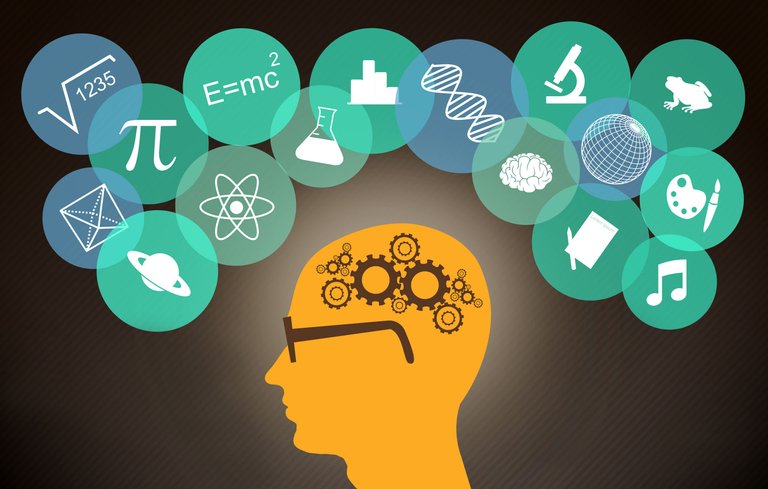We know from the school that a neuron consists of a cell body and processes, called dendrites and axons. Dendrites in a neuron can be many and they strongly branch, with their help the neuron collects impulses from other cells. Axon is one, and on it the signal goes from the neuron to the neighbors. It seems obvious that the electrochemical activity of the body of the cell and its processes should be the same, that the impulse should spread across the membrane along all parts of the neuron.

Source Neurons of the cerebral cortex grown in culture.
However, as researchers from Northwestern University (USA) found out, the activity of dendrites may not coincide with the activity of the body of the cell to which they are attached. Moreover, the coincidence or inconsistency of their activities plays an important role in the memorization and processing of information. Mark EJ Sheffield and Daniel A. Dombeck experimented with the so-called neurons in the hippocampus, which store the maps of the surrounding space (we recall that this year Neuron awarded the place for the Nobel Prize in Medicine and Physiology) . The experimental rodent was allowed into a labyrinth, which he gradually learned, while the researchers followed the activity of its navigation neurons.

It turned out that dendrites do not always "actively" simultaneously with the cell body. The activity of dendrites is associated with memorizing tasks, whereas the body of the cell itself works when it is necessary to react to some perceived information. In other words, perception and processing are not identical to remembering-remembering - the neuron simply reacts to what the eye has seen, but it is not necessarily postponed in memory. But if the activity of the dendrites and the body of the cell is synchronized, then the memory function will turn on, and on how well the activity in different parts of the neuron coincided, the quality of the memory depends - for example, how well the rodent will remember one or another piece of the labyrinth.
It used to be that in the nerve cells processing information is inseparable from its memorization, and vice versa. That is, if a neuron passed through an impulse through itself, then the information was inevitably stored in memory, and then the recall caused exactly the same activity as when perceiving the stimulation. However, as we see, there is a kind of "division of labor" in the neuron: some current work can be performed without remembering, if a memory operation is required, then the activity of the cell body must coincide with the activity of the dendrites.

This can be compared to how a person performs some routine work, mindlessly working with his hands, however, if some kind of non-standard manipulation is required, or if something needs to be remembered for the future, then the brain turns on and begins to closely monitor our actions . Only neurons have the role of the brain (although such a comparison can only be done with a very great stretch), dendrites and synchronization of activity between them and the cell body play. In the future, the results obtained should help us to better understand the nature of memory, and at the same time how it can be protected in psycho-neurological diseases.

